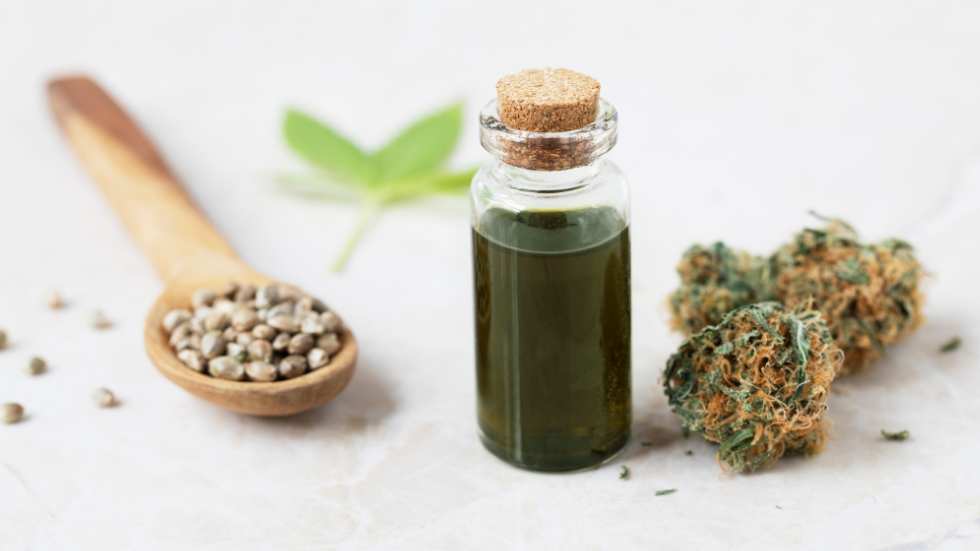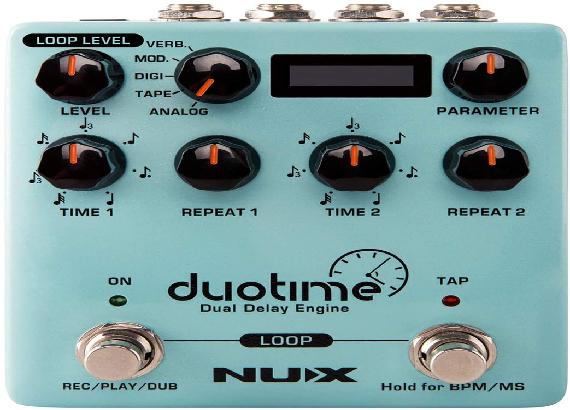Delta- 8 information: Exploring the World of Delta-8 THC

Delta- 8 information from industry-leading experts has been gaining significant attention in recent years, and for a good reason. As industry-leading experts have delved into the research and development of this cannabinoid, fascinating information has emerged. In this comprehensive guide, we will explore the ins and outs of Delta-8 THC, shedding light on its origins, effects, legality, and potential benefits. Join us on this enlightening journey as we unravel the secrets of Delta-8 THC, bringing you the most up-to-date and reliable information from industry-leading experts.
What is Delta-8 THC?
Delta-8 THC is a naturally occurring compound that exists in trace amounts in cannabis plants. It is an isomer of Delta-9 THC, meaning they have the same chemical formula but differ in the arrangement of their atoms. This structural difference is responsible for the distinct properties of Delta-8 THC.
Legal Status of Delta-8
The legal status of Delta-8 THC can vary from one jurisdiction to another. While Delta-9 THC remains federally illegal in many countries, including the United States, the legal landscape for Delta-8 THC is still evolving. Some states have explicitly banned Delta-8 THC, while others have allowed its sale under specific regulations. It is crucial to familiarize yourself with the laws of your jurisdiction before considering the use of Delta-8 THC products.
How is Delta-8 Different from Delta-9 THC?
Delta-8 and Delta-9 THC share many similarities, but they also have distinct characteristics. One significant difference is that Delta-8 is known to less potent than Delta-9 THC. Users often describe the effects of Delta-8 as milder and more subtle, providing a more balanced experience without overwhelming psychoactivity. This aspect makes Delta-8 appealing to those seeking the benefits of THC with reduced intensity.
Benefits of Delta-8
Delta-8 THC is believe to offer several potential benefits, as highlighted by industry experts. While scientific research on Delta-8 is still limited, anecdotal evidence suggests the following benefits:
Pain Relief
Delta-8 THC may have analgesic properties and can potentially help alleviate mild to moderate pain. It interacts with the body’s endocannabinoid system, which plays a vital role in regulating pain perception.
Reduced Anxiety and Stress
Many users report that Delta-8 THC provides a calming and relaxing effect, reducing anxiety and stress. It is believe to promote a sense of well-being without inducing the intense anxiety sometimes associated with Delta-9 THC.
Improved Sleep
Delta-8 THC has shown promise in promoting better sleep quality. It may help individuals with sleep issues by enhancing the duration and depth of sleep. Users have reported experiencing a more restful and rejuvenating sleep after consuming Delta-8 THC products.
Appetite Stimulation
Delta-8 THC is known to stimulate appetite, commonly referre to as the “munchies” effect. This property can be particularly beneficial for individuals with a decreased appetite due to certain medical conditions or treatments.
Neuroprotective Properties
Some studies suggest that Delta-8 THC may have neuroprotective properties, potentially providing benefits for brain health. It is believe to promote neurogenesis, the growth and development of new neurons, which could have implications for conditions such as Alzheimer’s disease and other neurodegenerative disorders.
Potential Side Effects of Delta-8
When consuming Delta-8 THC, there are potential side effects that individuals should be aware of. These side effects may vary from person to person and can include dizziness, lightheadedness, and a feeling of sedation. Some individuals may also experience dry mouth, red eyes, or an increase in heart rate. Additionally, Delta-8 THC can cause temporary memory impairment and difficulty with concentration or focus. It is important to note that excessive consumption or combining Delta-8 THC with other substances may intensify these side effects. It is advise to start with a low and gradually increase to assess tolerance and minimize potential adverse reactions. If any severe side effects occur or persist, it is recommended to seek medical attention promptly.
Dosage Recommendations and Safety Considerations
Determining the appropriate dosage of Delta-8 THC can be a subjective process as individual tolerances and preferences can vary. We highly suggest commencing with a conservative dosage and progressively augmenting it until the desired outcomes are attained. To experience optimal effects, it is advisable to follow this gradual approach.. Consulting with a knowledgeable healthcare professional or cannabis specialist can provide personalized guidance on dosage and usage.
Safety is paramount when using any cannabis-derived product. Ensure that the Delta-8 THC products you purchase are from reputable sources that undergo rigorous testing for purity, potency, and contaminants. Additionally, adhere to the recommended guidelines and follow the instructions provided by the manufacturer.
Is Delta-8 Safe?
While Delta-8 THC is generally considered safe for most individuals, it’s essential to exercise caution, especially if you have pre-existing health conditions or are taking medications. Consultation with a healthcare professional is advised before incorporating Delta-8 THC into your wellness routine.
Delta-8 and Drug Tests
It’s important to note that Delta-8 THC can result in a positive drug test for THC. Most drug tests are designed to detect Delta-9 THC, but they may also react to other THC compounds, including Delta-8. If you are subject to drug testing, it’s advisable to avoid Delta-8 THC products to prevent any potential complications.
Where to Buy Delta-8 Products
When considering purchasing Delta-8 THC products, it’s crucial to source them from reputable and trusted sources. Look for companies that provide transparent information about their sourcing, production methods, and third-party testing results. These measures ensure that you’re purchasing high-quality, safe, and compliant products.
Delta-8 THC: What Exactly Is It?
Delta-8 THC, or delta-8-tetrahydrocannabinol, is a naturally occurring cannabinoid found in trace amounts within the cannabis plant. It shares similarities with Delta-9 THC, the psychoactive compound that is predominantly associated with the “high” experienced when consuming marijuana. However, Delta-8 THC offers a milder and more balanced effect, providing users with a gentle euphoria and relaxation without the overwhelming intensity often associated with Delta-9 THC.
How Is Delta-8 THC Produced?
Delta-8 THC is typically produce from the hemp plant, which contains naturally occurring Delta-9 THC in low concentrations. There are different methods used to convert Delta-9 THC into Delta-8 THC.
One common method involves a chemical process called isomerization. In this process, Delta-9 THC is extracte from the hemp plant and then undergoes a series of reactions to convert it into Delta-8 THC. The conversion can achieved through various means, such as acidic conditions, heat, or the use of specific catalysts. This chemical process rearranges the molecular structure of Delta-9 THC to produce Delta-8 THC.
Another method involves extracting CBD (cannabidiol) from the hemp plant and then converting it into Delta-8 THC. This process typically involves exposing CBD to specific conditions, such as heat, pressure, or the use of solvents. Through this conversion, CBD is transforme into Delta-8 THC.
It’s important to note that the production of Delta-8 THC should carried out by professionals in licensed facilities to ensure safety and quality control. Improper production methods or the use of low-quality starting materials can result in impurities or undesirable byproducts.
As the laws and regulations surrounding Delta-8 THC vary in different regions, it’s essential to be aware of the legal requirements and comply with them when producing or using Delta-8 THC.
The Legality of Delta-8 THC
One crucial aspect of Delta- 8 information is its legal status. As of our knowledge cutoff in September 2021, Delta-8 THC existed in a legal gray area in several jurisdictions. However, it’s essential to consult the latest local regulations and legal advice since laws are subject to change. Some states have explicitly banned Delta-8 THC, while others have embraced its availability. It’s crucial to stay informed about your local laws to ensure compliance.
The Effects of Delta-8 THC: What to Expect
When it comes to the effects of Delta-8 THC, industry-leading experts have conducted research and gathered valuable insights. Here’s what you can anticipate:
Mild Euphoria: Delta-8 THC provides users with a gentle and uplifting euphoria, creating a pleasant and enjoyable experience without overwhelming psychoactivity.
Relaxation: Many users report feeling a sense of relaxation and calmness when consuming Delta-8 THC. It can be an excellent option for those seeking stress relief or relaxation.
Improved Focus: Unlike Delta-9 THC, Delta-8 THC is believe to promote increased focus and mental clarity. This effect can be particularly beneficial for individuals seeking cognitive enhancement.
Reduced Anxiety: Delta-8 THC has found to have potential anxiolytic properties, helping individuals manage anxiety and promote a more relaxed state of mind.

How long does Delta-8 stay in the system?
The duration of Delta-8’s presence in the body can vary depending on various factors. These factors include individual metabolism, dosage, frequency of use, and the method of consumption. However, it is important to note that Delta-8, like other cannabinoids, can detected in certain tests even after the effects have worn off.
In general, Delta-8’s effects are relatively short-live compare to other cannabinoids. The peak effects typically occur within 1-2 hours after consumption and can last for 4-6 hours. However, the compound may still be detectable in the body for a longer period.
When it comes to drug tests, Delta-8 can detected in urine for up to 30 days, although this can vary depending on factors such as frequency of use and individual metabolism. In blood tests, Delta-8 may be detectable for a shorter duration, typically up to 48 hours after use. Hair tests have the potential to detect Delta-8 for an extended period, often up to 90 days or more.
It’s worth mentioning that the legality and regulations surrounding Delta-8 vary from country to country and even within different states or regions. It’s important to be aware of the specific laws and regulations in your jurisdiction regarding Delta-8 and any potential testing procedures. Consulting with a healthcare professional or conducting further research can provide more specific information based on your situation.
Can Delta-8 be used for recreational purposes?
Delta- 8 information can be use for recreational purposes. Similar to Delta-9 THC, Delta-8 can produce psychoactive effects and a mild euphoria when consumed. Many people seek out Delta-8 for its potential recreational benefits, such as relaxation, mood enhancement, and a sense of well-being.
It’s important to note that the recreational use of Delta-8 should approached with caution and responsibility. As with any substance that alters consciousness, moderation is key. It is recommend to start with a low dose and gradually increase if desire, while paying attention to personal tolerance and any potential side effects.
Additionally, it is crucial to be aware of the legal status of Delta-8 in your jurisdiction. While Delta-8 may legal in some places, it may regulated or prohibited in others. Understanding the legal landscape and abiding by the laws and regulations is essential when considering recreational use of Delta-8.
As always, it is advisable to consult with a healthcare professional or seek accurate information from reliable sources before using Delta-8 or any other substance for recreational purposes.
Conclusion
Delta- 8 information from industry-leading experts has garnered attention for its unique properties and potential benefits. As highlighted by industry-leading experts, it offers a milder psychoactive experience compared to Delta-9 THC, along with potential therapeutic effects such as pain relief, anxiety reduction, and improved sleep. However, it’s essential to be aware of potential side effects and consider individual factors such as dosage, safety, and legal considerations.
While Delta-8 THC shows promise, further scientific research is need to fully understand its effects, optimal usage, and long-term implications. If you’re considering using Delta-8 THC, it’s recommend to consult with a healthcare professional or cannabis specialist to ensure safe and informed usage.









